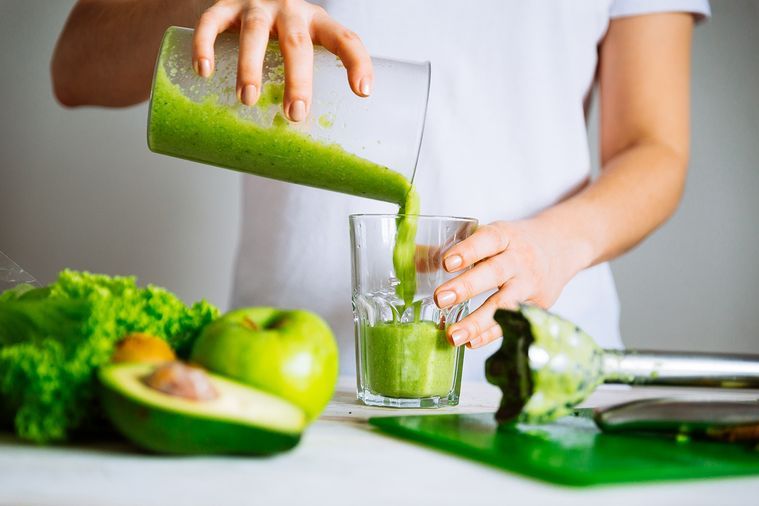Celery juice has become a popular health trend, touted for its numerous health benefits. However, like any other health trend, it’s essential to understand the potential side effects, especially concerning vital organs like the kidneys. This article explores how celery juice can affect your kidneys, providing detailed information in a simple and easy-to-read manner.
What is Celery Juice?
Celery juice is made by blending or juicing fresh celery stalks. It’s praised for its high nutrient content, including vitamins A, C, and K, as well as minerals like potassium and folate. Many people drink celery juice for its potential health benefits, such as improving digestion, reducing inflammation, and supporting heart health.
Why People Drink Celery Juice
Health Benefits
- Rich in Nutrients: Celery juice contains essential vitamins and minerals that support overall health.
- Hydration: With its high water content, celery juice helps keep you hydrated.
- Anti-Inflammatory Properties: Celery juice is known for its potential to reduce inflammation in the body.
- Digestive Aid: Many believe that celery juice can improve digestion and reduce bloating.
- Antioxidant Boost: Celery juice is packed with antioxidants, which help fight free radicals and reduce oxidative stress.
How Celery Juice Affects the Kidneys
Positive Effects on Kidneys
- Hydration Support: The high water content in celery juice can help maintain adequate hydration, which is crucial for kidney function.
- Detoxification: Celery juice is believed to have detoxifying properties, helping the kidneys flush out toxins more efficiently.
- Anti-Inflammatory Benefits: By reducing inflammation, celery juice may help protect the kidneys from inflammatory damage.
Potential Negative Effects on Kidneys
- High Sodium Content: Celery naturally contains sodium, which can be problematic for individuals with kidney issues, as excess sodium can strain the kidneys.
- Oxalate Levels: Celery contains oxalates, which can contribute to kidney stone formation in susceptible individuals.
- Potassium Overload: Celery juice is high in potassium, which can be harmful to people with kidney disease who need to monitor their potassium intake closely.
Risks of Drinking Celery Juice for Kidney Health
High Sodium and Kidney Strain
While celery juice is generally healthy, its sodium content can be a concern. High sodium intake can lead to increased blood pressure, putting extra strain on the kidneys. For individuals with pre-existing kidney conditions or hypertension, this can exacerbate their health issues.
Oxalates and Kidney Stones
Celery contains oxalates, compounds that can form crystals and contribute to kidney stone development. For people prone to kidney stones, consuming large amounts of celery juice could increase their risk.
Potassium and Kidney Function
Potassium is an essential mineral, but too much can be dangerous for those with kidney problems. The kidneys regulate potassium levels, and impaired kidney function can lead to potassium buildup, potentially causing heart issues.
Who Should Be Cautious About Drinking Celery Juice?
Individuals with Kidney Disease
People with kidney disease need to be particularly careful with celery juice due to its high potassium and sodium content. It’s advisable to consult with a healthcare professional before adding celery juice to their diet.
People Prone to Kidney Stones
Those with a history of kidney stones should also be cautious, as the oxalates in celery can contribute to stone formation. Monitoring and moderating celery juice intake can help mitigate this risk.
Individuals with High Blood Pressure
Given the sodium content in celery, individuals with high blood pressure should consume celery juice in moderation. Excessive sodium can exacerbate hypertension, further straining the kidneys.
How to Safely Include Celery Juice in Your Diet
Moderation is Key
- Limit Intake: Drinking celery juice in moderation can help minimize potential risks while still enjoying its benefits.
- Balanced Diet: Incorporate a variety of fruits and vegetables to ensure a balanced intake of nutrients and avoid overconsumption of any one food.
Consult with a Healthcare Professional
Before making significant changes to your diet, especially if you have underlying health conditions, it’s crucial to consult with a healthcare professional. They can provide personalized advice based on your health needs.
Monitor Your Body’s Response
Pay attention to how your body responds to celery juice. If you notice any adverse effects, such as changes in urine color, increased blood pressure, or discomfort, it may be best to reduce or discontinue its use.
Conclusion
Celery juice offers numerous health benefits, but it’s important to be aware of its potential side effects, especially concerning kidney health. Understanding the risks and practicing moderation can help you enjoy celery juice safely. Always consult with a healthcare professional if you have any concerns about adding celery juice to your diet.
In summary, while celery juice can be a healthy addition to many diets, those with kidney issues or prone to kidney stones should approach it with caution. By staying informed and making mindful choices, you can enjoy the benefits of celery juice without compromising your kidney health



